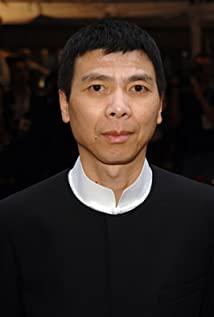I was very moved by this story for a long time, and I was going to be moved, but in the end, I just threw a wine bottle in front of the head of the regiment in Guzidi. When the commander knelt down, his eyes were a little wet, and the tears were forced by the incoherent emotions. gone back.
After the show, my mood was like a tied sausage, hanging one by one in the winter wind to dry in the sun. I really can't string together a complete emotion, whether it is the cruelty of war or the entanglement of human nature, whether it is the meaning of sacrifice or the value of pursuit, they are all broken down one by one in the scattered film structure, at least my feelings are broken down one by one , it's a little depressing. Maybe it was the wrong time and place to watch the movie, or maybe my mood was wrong.
It's a movie without a climax, and all the emotion comes a little abruptly and a little weakly.
I think if the first half of the war and the second half of the lawsuit were made separately, it would be a very good movie. But I didn't see it.
Russell said that three simple and unusually strong passions have dominated my life: the thirst for love, the thirst for knowledge, and the irrepressible sympathy for human suffering. The third emotion can also be understood as redemption, and "Assembly" is telling a story of redemption.
In "The Shawshank Redemption", Andy was wrongly sentenced to prison. It took 16 years to dig a tunnel to freedom and achieve self-redemption. When he climbed out of the pipe and stood in the thunderstorm night, he watched By the time he smiled contentedly and relieved, such a redemption was exciting.
The redemption of General Hammer in "Stone Shattering" chose a more extreme way. In order to seek justice from the government for the dead and forgotten old ministries, the general led his subordinates to smuggle biological and chemical weapons to Rock Island, hijacked 81 tourists who were sightseeing on the island, and threatened the US government to pay a ransom of 100 million yuan within 48 hours. Otherwise kill the hostages and gas-bomb San Francisco. He chose to have a direct dialogue with the state or the state machine. In the end, he gave up exchanging the lives of millions of people for his own redemption. He deeply knew that "we all have brothers who shed blood on the battlefield and they The heart of the Pentagon is regarded as rubbish by the Pentagon, but this does not give you the right to betray." He did not betray his own country and responsibilities, but he achieved self-salvation in a fierce way, indicating to the country that the country should treat it favorably. It made sacrifices to the individual. This kind of redemption still touches people's hearts.
It's just that in "Assembly", Gu Zidi's redemption is obviously so weak, and the emotion is not strong enough, because the martyr has 700 pounds of rice, and the missing only 200 pounds, because "the parents gave birth to names, here. I've become an unnamed child anyway." Or whether the rallying horn sounded. Later, he found the organization, but was repeatedly suspected of his identity, so he went to the coal kiln by the Wenhe River alone, lived in a shed, ate steamed buns, drank cold water, and dug up the corpses of Jiulian brothers day and night. We can indeed understand that as He was "crazy", he was just escaping, escaping the rallying call that sounded in his ears day and night, but all the actions he could think of were only this, he was redeeming himself. I finally waited for the rectification of the organization's name. When Gu Zidi received the medal, it was only a deeper pain, and it also stabbed my heart. This rectification only reflects his weakness and the weakness of the country. Is this the meaning of being a victim? Is this the value of life?
If Gu Zidi could dig out the bodies of his brothers with his own hands, I think he would laugh with satisfaction and relief, even if it took 16 years or a lifetime. Maybe he could go as extreme as General Hammer. However, this is not allowed in China. It is a bit sad, whether it is the sadness of the victims or the sadness of the survivors.
The monument is built, the rallying call is sounding, the hero is rectifying the name, but I am wondering if the redemption of Guzidi is over, can this ending achieve self-salvation, and the rallying call that rings in my ears day and night disappears? ? At least not in my opinion. Actor Zhang Hanyu has been deeply involved in the play and has been unable to extricate himself.
Therefore, it can only be said that such redemption is weak.
View more about Ji jie hao reviews











